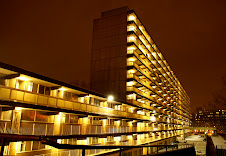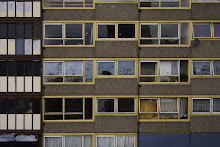
The chairman only comes in once a week, on Thursdays, and some weeks he doesn’t come in at all. He has a big office with a fireplace and a clock with big black metal hands and the old two key system to wind it – one key for the chimes, the other for the clock itself – and he gets very upset if his clock isn’t wound properly. I’ve never met him, only stood in the gloom of his office, entering through the big wooden door with ‘managing director’ on a gold plaque across the front. The office is on the first floor, in the building adjacent to the store with it’s wooden floors, stacks of wine bottles, the big iron scale where you can weigh yourself and buy your weight in wine, the two assistants who stand by the doorway and hold the door open for customers.
Berry Brothers and Rudd was originally the store and the offices above it, but over the years the original building has joined up with Cutty Sark, the whisky company, taken over the building behind – which they converted into guest apartments and function rooms – and the building next door, which became offices. Since the Cutty Sark building is on Pall Mall and Berry Brothers and Rudd on St. James and a building sits between them, the two halves of the company are connected by a sort of bridge on the third floor which has big glass windows and houses the all-important coffee machine.
Only the Cutty Sark building has an elevator, so in the other three buildings you have to run up and down the stairs – old wooden stairs at the back of number 3 St. James (the store building), and a larger, modern staircase in number 4. Below all four buildings are the cellars. Most of the rooms are open, but there are one or two rooms where really expensive wines are kept behind iron bars. Mixed in with the wine cellars are store rooms, and impressive function rooms with bare stone walls, heavy wood beams holding up the ceiling, and framed prints that look like they were clipped from the old Punch magazine. Below the cellars and the conference rooms is a kitchen where a half-dozen or so cooks prepare lunch and dinner for functions.
The whole is like a maze, with rooms leading to stairs and back into rooms. To get from one building to another, you often have to go down to the cellars and up again, or find your way to the bridge, or simply go out onto the street and re-enter through the front of either of the buildings. The function rooms above the store are even more impressive than the ones down below. Old rooms with bottled sailing ships, and paintings of famous clippers and other sailboats – a reminder of England’s glorious seagoing past, at a time when Britain has hardly any presence on the sea (how does it affect the psychology of Britons, to have once had the sea so much a part of their lives, and to have it no more? To be landlocked on their little island?). A paneled table dominates the main room, the kind where you can take the panels in and out as you need them. I almost broke it my first day when I forgot to put in the supports first – the damn thing must be at least a century old. Old clocks like the one in the director’s office sit above the fireplace in each room, and it is my job to light the gas fireplaces each morning and wind the clocks every Monday and Friday. One clock, made of metal – unlike the others, whose casings are of deep brown wood – has 1656 stamped on the front and I nearly had a heart attack when, on Friday, the old one stopped ticking as I was winding it.
Aside from taking care of the fireplaces and the clocks, my job is to collect and distribute the mail, open the rooms, stock the tea and coffee machines, replenish the water coolers and attend to whatever needs attending to. It’s not that hard, not yet anyway, but it does involve going up and down a lot of stairs – I get pretty tired at the end of the day. On the plus side, I like the feeling of having stepped back a hundred and fifty years, so that I half-expect to see a man in a big top hat creaking up the stairs, or the lights fuelled by gas rather than electricity.
So far I’ve been treated courteously enough by everybody. Maggie, the receptionist and the person I report to the most (I have to wear one of those little beeper things so she can page me wherever I am in the building), has been nice. She has those qualities I respect in a certain type of English woman – respect, civility, thoughtfulness, warmth. Humour, a finely developed sense of the absurd. She said she had been a special needs teacher for fifteen years but became burnt out because so many of her children would die over the course of the year from illness or just the natural course of their disability. “You couldn’t explain to the bureaucrats up above who wanted a special curriculum that the only curriculum many of these children needed was to stay alive. “ She didn’t want to dilute her passion by turning to some other form of teaching so she became a receptionist.
The portraits of a young Queen with Prince Phillip adorn all the rooms. Buckingham Palace is just around the corner. Maggie said she met Princess Anne once when she was a teacher. “Very down to earth and seemed engaged with the real world.” On Friday, we got letters addressed to Buckingham Palace – postcode SW1A 1AA – and even one addressed to HRH Princess Anne. We had a laugh about it and Phillip, the very gay financial manager came out of a meeting and Maggie showed him the letter and we laughed about it again as Phillip said:
“Oh Maggie, we are royalty. Most of us anyway.”
Booze is everywhere – whiskey bottles line the shelves and desks and even the floor in the Cutty Sark building, booze and wine the St. James’ buildings. Far from making me want to drink, looking at it all day after day makes me slightly naseous – in many of the offices there is the sour odour of an opened whiskey bottle and I get the sense that some of the staff imbibe pretty regularly – that for some, imbibing is part of their job. But after a certain point, booze inspires no longing in me – it becomes just an object, like shoes or chocolate.







No comments:
Post a Comment